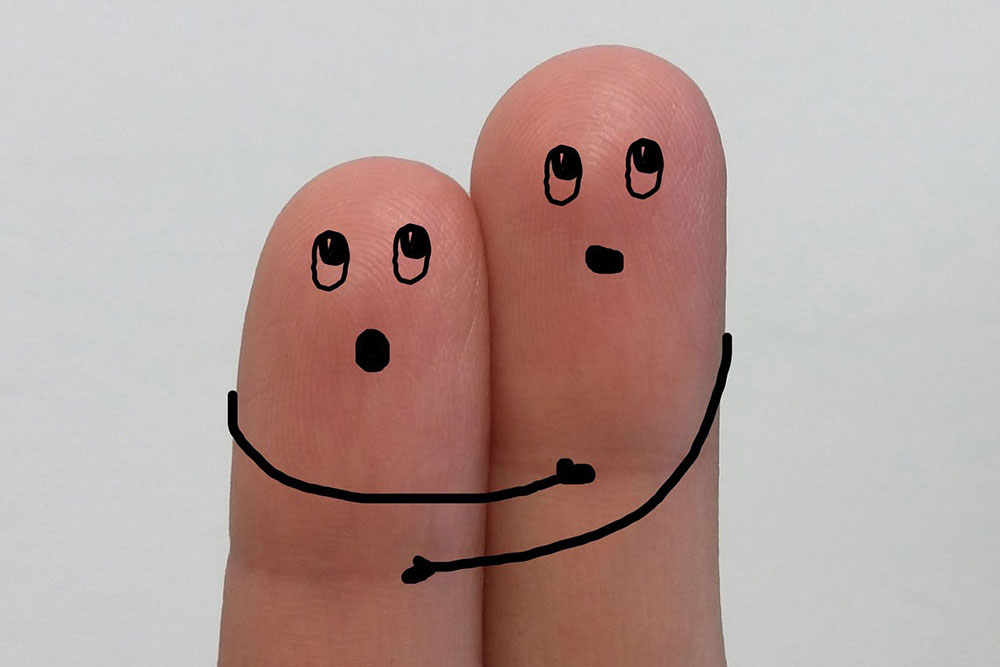Therapy For Anxiety Disorders
Published on August 17th, 2022
Updated on February 3rd, 2024

There are currently millions of people who suffer from anxiety each day. Each person who suffers from anxiety has symptoms, causes, and challenges to face. It can often be hard for most people to cope with their symptoms of anxiety.
Properly coping with anxiety can improve an affected person’s quality of life. There are people who have symptoms of anxiety that affect their lives each day. The best way to learn how to cope with anxiety is through therapy with a mental health professional.
Anxiety is different for everyone. Some people experience anxiety due to stress but do not suffer from an anxiety disorder. Others may suffer from chronic anxiety that may be considered an anxiety disorder. There are several different types of anxiety disorders that can affect a person, like:
Sponsored by

Choose a therapist to work with and start healing with 20% off from BetterHelp.
Click Here- Generalized anxiety disorder
- Obsessive-compulsive disorder
- Specific phobias
- Social anxiety disorder
- Agoraphobia
- Adjustment disorder
- Panic disorder
Anxiety can be a debilitating mental health condition. It is marked by intense worries, nervousness, and feelings of dread. It can impact your daily life by making work, school, home life, and even routine activities extremely difficult.
The anxiety itself often inhibits affected people from seeking and receiving the treatment they need. This prevents them from learning how to manage their symptoms and live healthy, fulfilling lives. However, anxiety is treatable. If you are experiencing symptoms of anxiety, then you should seek the treatment you deserve.
Because there are many different types of anxiety, there is no one type of therapy that helps all people with the condition. Instead, there are different types of therapy that a therapist may use. The type of therapy used is based on the therapist’s training and your needs. A therapist will help you find the right type of therapy to help your condition.

How Therapy Helps People With Anxiety
Consulting with a therapist is an important part of overcoming anxiety. It is okay if you are having trouble identifying your triggers. Your therapist will be able to help you understand the situations that cause the most stress for you.
Your therapist is going to play a key role in learning how to manage your anxiety. They will be able to help you to understand your triggers. They will also help you to understand how your triggers developed.
A professional therapist will work with you by using different therapeutic techniques. These techniques help you understand and develop coping skills for your anxiety. Effective forms of therapy that are incorporated into treatment for anxiety include:
Talk Therapy
Talk therapy is an important part of treating anxiety. With talk therapy, you will learn how to identify the problem areas of your thinking. Such problem areas may include:
- Poor self-image
- Overthinking
- Drawing conclusions about others
- Low self-esteem
- Trauma
- Phobias and irrational fears
Talk therapy also helps you learn how to strengthen your coping strategies. Part of this process is teaching you how to separate the past from the present. It is also important to track your personal growth. There are different approaches to using talk therapy. Such therapeutic approaches that may be used in therapy are included in the list below.
Cognitive Behavioral Therapy (CBT)
Cognitive behavioral therapy (CBT) is an effective form of therapy for treating anxiety. It targets negative self-talk that a person with anxiety may struggle with. CBT pinpoints and challenges thoughts that may fuel anxiety, low self-esteem, and self-doubt. This helps to reduce your emotional reaction. It can also help reduce unwanted behaviors in upsetting or challenging situations. The key intentions of this technique are to:
- Learn how to challenge your negative self-talk
- Change how you interpret stressful situations
This process helps you restructure how you think and react to anxiety-provoking situations. CBT targets 3 main types of experiences people have:
- Emotions
- Thoughts
- Behaviors
Each of these experiences affects one another. They will each influence each other. Their intensity will strengthen the negative reactions that come with anxiety.
CBT teaches a person how to effectively learn and practice coping skills. These coping skills can be used to combat negative thoughts, feelings, and reactions. This helps by reducing how badly the negative experiences affect a person’s anxiety. It helps by teaching people how to challenge their negative thoughts. challenging negative thoughts will result in less intense emotions and reactions.
People with anxiety can find helpful coping skills from CBT. Anxiety frequently afflicts people with low self-esteem. Using CBT, negative thought patterns are identified, explored, and challenged. CBT can be applied in a variety of ways. There are different CBT approaches that can be used to treat anxiety. Such approaches include:
Social Skills Training
Social skills training is an approach to CBT that can be especially helpful for social anxiety, shyness, and low self-esteem. It focuses on increasing confidence when meeting others, initiating conversations, and enhancing relationships. Your therapist will use exercises like role plays to help you build your social skills. Role-playing with your therapist allows you to practice new skills in a safe space.
Social skills training typically starts with an assessment by a mental health professional. This assessment will inventory your social struggles, including triggers, responses, fears, and impairments. Your therapist will help you create a treatment plan to address these struggles. They will explore various interventions with you that help to reduce the impact they have on your life.
Cognitive Restructuring
Cognitive restructuring focuses on the idea that people have “faulty thinking”. This faulty thinking can be altered to improve your quality of life. Cognitive restructuring is helpful for people with anxiety. It explores how changing negative thoughts can help with managing life stressors.
Example: A therapist may teach you how to challenge your negative thoughts. With cognitive restructuring, you may ask yourself “will this truly hurt me?” or “what is the worst possible outcome?”
Cognitive restructuring requires ongoing effort. With hard work and practice, you may begin to notice a change in your negative thought patterns.
Dialectical Behavioral Therapy (DBT)
Dialectical behavioral therapy (DBT) is a popular form of therapy used by mental health professionals. With DBT, you learn how to regulate your anxious feelings, thoughts, and behavior. DBT helps you learn how to cope with your social anxiety in the moment that you are feeling anxious. It helps you to relax your body and mind to reduce symptoms.
Tip: Dialectical Behavioral Therapy combines the following concepts:
- CBT
- Distress tolerance skills
- Emotional regulation
- Mindfulness skills
DBT offers two coping skills that can be especially helpful when coping with anxiety. Those two coping skills are muscle relaxation exercises and deep breathing. Both exercises can be used to reduce stress when in anxiety-provoking situations.
Muscle Relaxation Exercises
People with anxiety suffer from muscle tension when feeling triggered. Muscle relaxation exercises are used to relax the body and mind when feeling anxious. People with anxiety may use this exercise to decompress when feeling overwhelmed. They may also use it as a grounding tool when they are struggling to focus.
Deep Breathing Exercises
Deep breathing makes a big difference for people who struggle with anxiety. Breathing exercises help you learn how to breathe in a way that reduces stress. They reduce symptoms like muscle tension and racing thoughts. This allows you to stay calm and present when feeling triggered.
The oxygen you pull into your lungs creates a euphoric feeling. This euphoric feeling relaxes the muscles. It helps you feel calm in uncomfortable situations. It can also be helpful when managing panic attacks and feelings of dread.
Exposure Therapy
Exposure therapy is a form of therapy that specifically targets feared situations. These are situations that a person with anxiety may want to avoid. Exposure therapy is especially effective for people who suffer from:
- Phobias
- Social anxiety disorder
- Agoraphobia
- Obsessive-compulsive disorder
Exposure therapy uses gradual and repeated exposure to your trigger for anxiety. This makes the anxious reaction less intense. It uses exposure techniques to help you get used to the trigger. This is intended to make the trigger feel less threatening It also reduces the anxious reaction.
Exposure therapy can be extremely intimidating at the beginning of treatment. The word “exposure” alone turns many people off. While challenging, this treatment can be effective when treating certain types of anxiety. This is provided that it is structured and monitored by a professional.
Systematic Desensitization
When starting exposure therapy, you will engage in a process called systematic desensitization. This process guides you through steps in which you learn how to tolerate your feared situations. You may first learn coping skills, like:
- Muscle relaxation techniques
- Visualization techniques
- Grounding skills
Another part of systematic desensitization is learning how to create a hierarchy of feared situations. This hierarchy will serve as a guide for how you will build tolerance and resilience for your feared situations. From there, you will begin to face your fears.
You may be guided through visualization exercises before being exposed to your feared situations. In such an exercise, you are instructed to visualize the dreaded event or situation in a safe space. Your therapist will teach you how to use your coping skills when feeling anxious.
The next step of systematic desensitization will be to gradually expose you to the feared situation. The therapist will go at your pace and assist you in using the coping skills learned in sessions.
Exposure therapy is a powerful intervention. It allows you to realize your ability to face and conquer your fears. This approach is a great confidence builder and helps people with anxiety gain a sense of personal empowerment.

Group Therapy For Anxiety
People who are seeking therapy for anxiety may consider group therapy. Group therapy for anxiety allows affected people to be around other people struggling with anxiety. This can bring comfort and diminish feelings of loneliness and isolation. It may also be a more affordable option than individual counseling sessions.
Group therapy for anxiety addresses challenges of this condition, such as:
- Fears
- Irrational thoughts
- Anxious behaviors
- Avoidance
- Self-conscious feelings
- Insecure feelings
Behavioral exercises and talk therapy are used to address these challenges in a group setting.
Why Therapy For Anxiety Is Important
Anxiety is difficult to cope with. Sometimes it could feel like you are isolated, damaged, and can never get better. When you have anxiety, it can be hard to feel worthy or capable of good things in life.
Example: The following may feel unattainable for someone with anxiety:
- Developing friendships
- Building successful careers
- Having relaxing hobbies
- Building a healthy sense of self-esteem
It is possible to improve your coping skills and reduce your feelings of anxiety. Therapy will help you learn ways to manage your symptoms. It is the first step in reducing your anxiety and feeling better.
Therapy can be a powerful approach to improving, and ultimately overcoming your anxiety. However, for therapy to be effective, then you need to be motivated and willing to do the work. Be open, honest, and upfront with your therapist, and practice what you have learned in therapy in real-world situations.
Relaxation Techniques For Anxiety
There are many different kinds of relaxation techniques that you may learn in therapy. Not all of them involve simply lounging or resting. Relaxation techniques can also be active, mindful, and reflective, and can work for most types of anxiety. The best place to start when building relaxation techniques to manage your anxiety is to find a technique that helps you feel at peace in the present moment.
The following are relaxation techniques that can help manage stress and anxiety. Consider asking your therapist about these relaxation techniques to help you reduce stress and manage anxiety symptoms in between sessions.
Grounding
Some of the most commonly used techniques for managing anxiety fall into the category of grounding. Grounding skills help bring the focus back to the present moment by noticing your surroundings and/or connecting to your body. Frequently used grounding techniques include:
Feeling Your Feet
This approach to grounding is just as it sounds – taking your shoes off and feeling the ground beneath your feet. This can be done standing or sitting, as long as your awareness is focused on the sensations at the bottom of your feet.
Naming The Objects
This grounding technique is great because it can be done anywhere, at any time. Looking around the room and naming the objects that you see helps you focus on the present moment. This helps redirect the mind away from the distressing thoughts that are going on in the mind. Naming the objects can be done silently in your head, or aloud.
Journaling
Journaling can be a powerful tool for managing stress, decreasing anxiety, and finding overall balance. There is no “right way” to journal.
Example: Some people like to write out their worries, list their fears, or detail their day.
After a period of consistent journaling, it can also be helpful to reread past journal entries. Through reflecting on past entries, you may be able to pick out and challenge unhelpful or unrealistic thoughts. Over time, this process can help “train” the brain away from thoughts that worsen anxiety.
Meditation
Meditation is a powerful relaxation technique that can help with reducing stress. It also helps with managing other feelings, like anxiety, depression, and anger.
It is assumed that meditation involves sitting still for some time and trying to clear your mind of thoughts, but this is not the case. Many forms of meditation use different processes that may fit your relaxation needs. They may be still or keep you moving and often incorporate a guided process into the practice.
Meditative practices that involve movement or a guided process include:
- Meditative or mindful walking
- Yoga
- Tai Chi
- Guided imagery meditation
When working to incorporate meditation practices into your life, it is important to stay patient and open to new ideas. Meditation practices can be relaxing, as long as you find value in the experience. Meditation techniques include:
- Self-reflection
- Muscle relaxation
- Mantras
- Deep breathing
- Visualization
Body Scans
Our body holds tension and stress in different places. Some people hold stress in their neck and shoulders, while others hold stress in their abdomen and hips.
Body scans can help you become aware of your stress and focus on consciously relieving the tension it causes in your body. They target areas in your body that need to relax and through tension and release practices, which help you relieve the tension.
It is helpful to complete a body scan with the guidance of a mental health professional at first. They will be able to instruct you on how to complete a body scan. After you have mastered the technique with their guidance, you will be able to perform the scan on your own when needed.
Deciding to seek help for social anxiety can be tough. With proper treatment, you can learn coping skills to manage your symptoms in a healthy way. With these coping skills, you can learn how to take control of your anxiety. You learn how to overcome challenging moments and develop a higher sense of self-esteem.
Sponsored by

Find an affordable therapist online with 20% off from BetterHelp.
Click Here






Leave A Reply